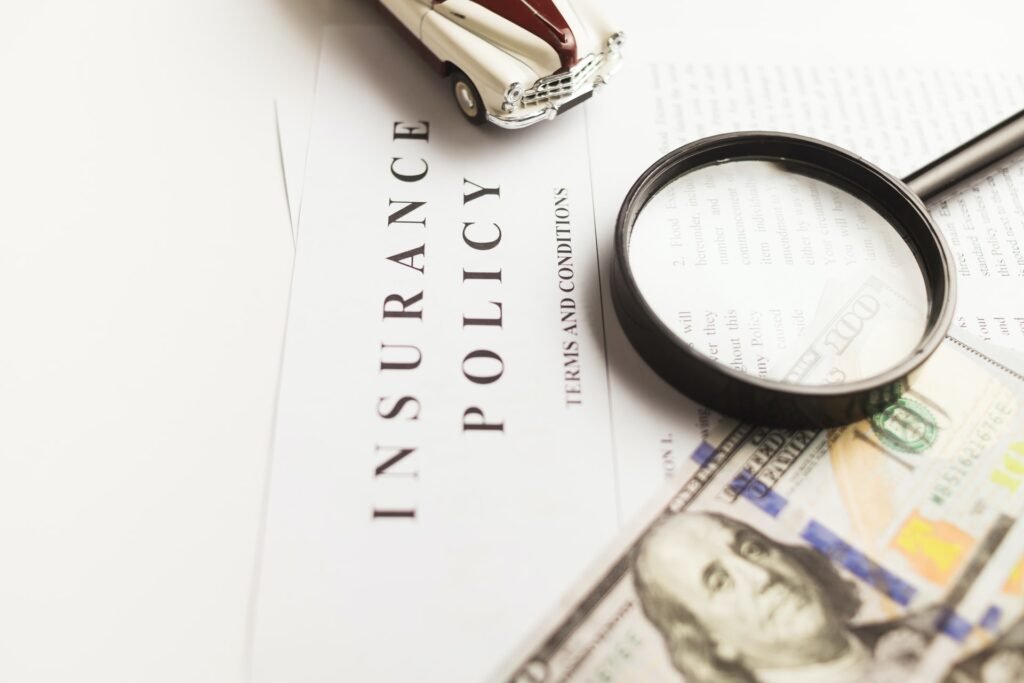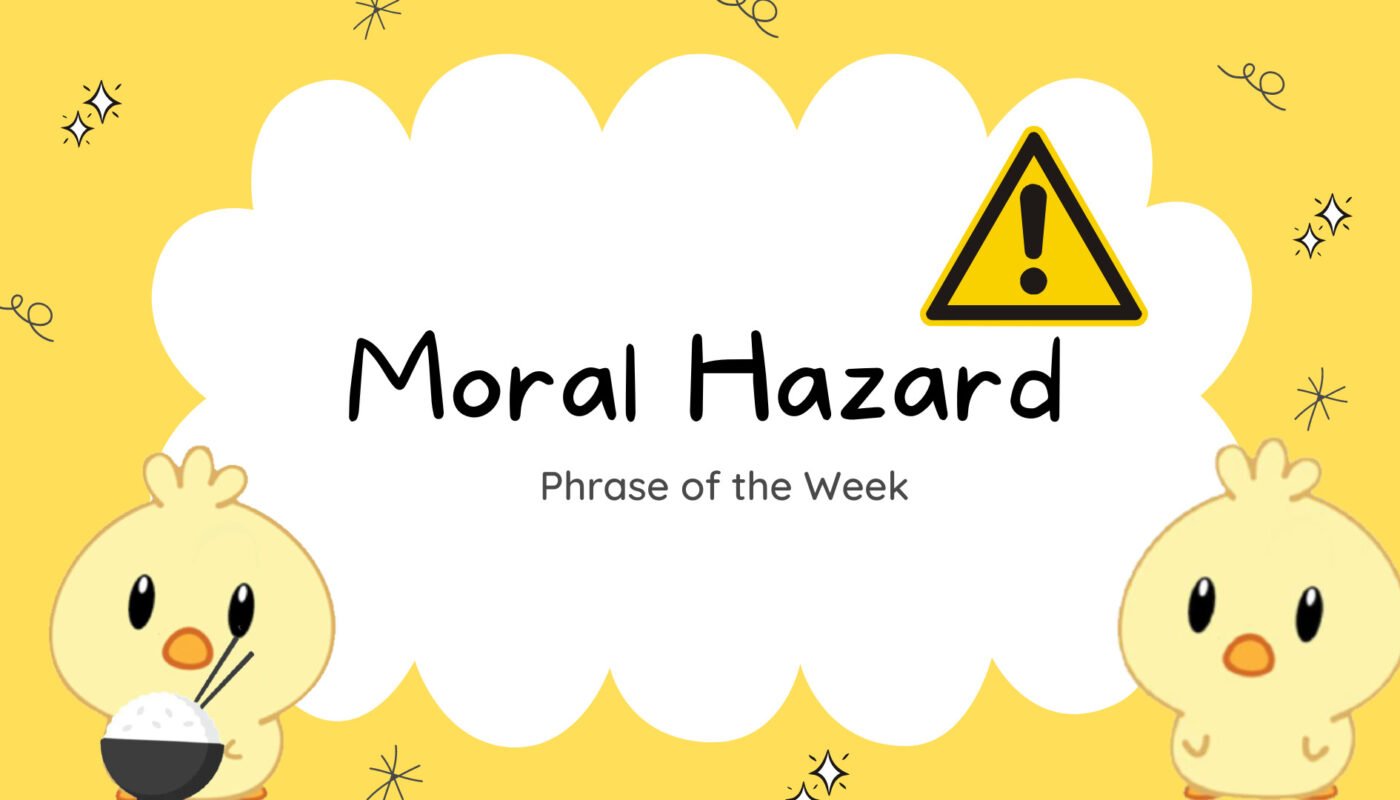In this week’s Phrase of the Week, I will cover a type of market failure, Moral Hazard.
What is Moral Hazard? Moral hazard occurs when economic agents take greater risks than they normally would because the resulting costs will not be borne by them.
Example of Moral Hazard?
The most classical example of moral hazard is in the insurance market. Take for example car insurance. If the car is not insured, the owner will take great care when driving and maintenance so that it does not get damaged/get into an accident/theft. However, a car owner who bought insurance to cover the full value of the car will not incur any cost in the event of an accident. Hence, the owner has little incentive to protect the car from accidents/theft.

What is not a Moral Hazard?
A car insurance company provides premium discounts to a driver that submits no insurance claims over many years of driving as a ‘reward’ for safe driving. Such an effect is not a moral hazard as such a change in behaviour is desirable rather than harmful.
That said, incentives like this help to mitigate moral hazard. We will talk more about such methods in the next section!
Ways to mitigate Moral Hazard
That said, there are several ways moral hazard can be mitigated.
Firstly, moral hazard can be mitigated through copayment and deductibles. Copayments refer to the insured paying a percentage of their total claim on their insurance. For example, Nom-ing Quackers had appendicitis and needed to get his appendix removed. As such, he had to undergo surgery to remove the appendix. While he is covered under his healthcare insurance, he still needs to fork out a copayment rate of 5% of the entire surgery & hospitalisation under the insurance’s copayment scheme.
On the other hand, deductibles refer to a sum specified in an insurance policy that the insured individuals must pay before being compensated for the claim. For example, Quakers was in an accident and needed to be hospitalised. He needs to pay a deductible of $3,000 before he can be compensated for his $10,000 hospitalisation claim.
Both strategies above are aimed at shifting some risk to the insured individuals. This discourages them from risky behaviour as well as making insurance claims excessively.
That will be all for this week’s Phrase of the Week! Hope you found it useful. If you did, be sure to check out my Instagram, where I will be giving examples of ways to mitigate Moral Hazard in comic form! Thank you all for your support : )
-Rice




